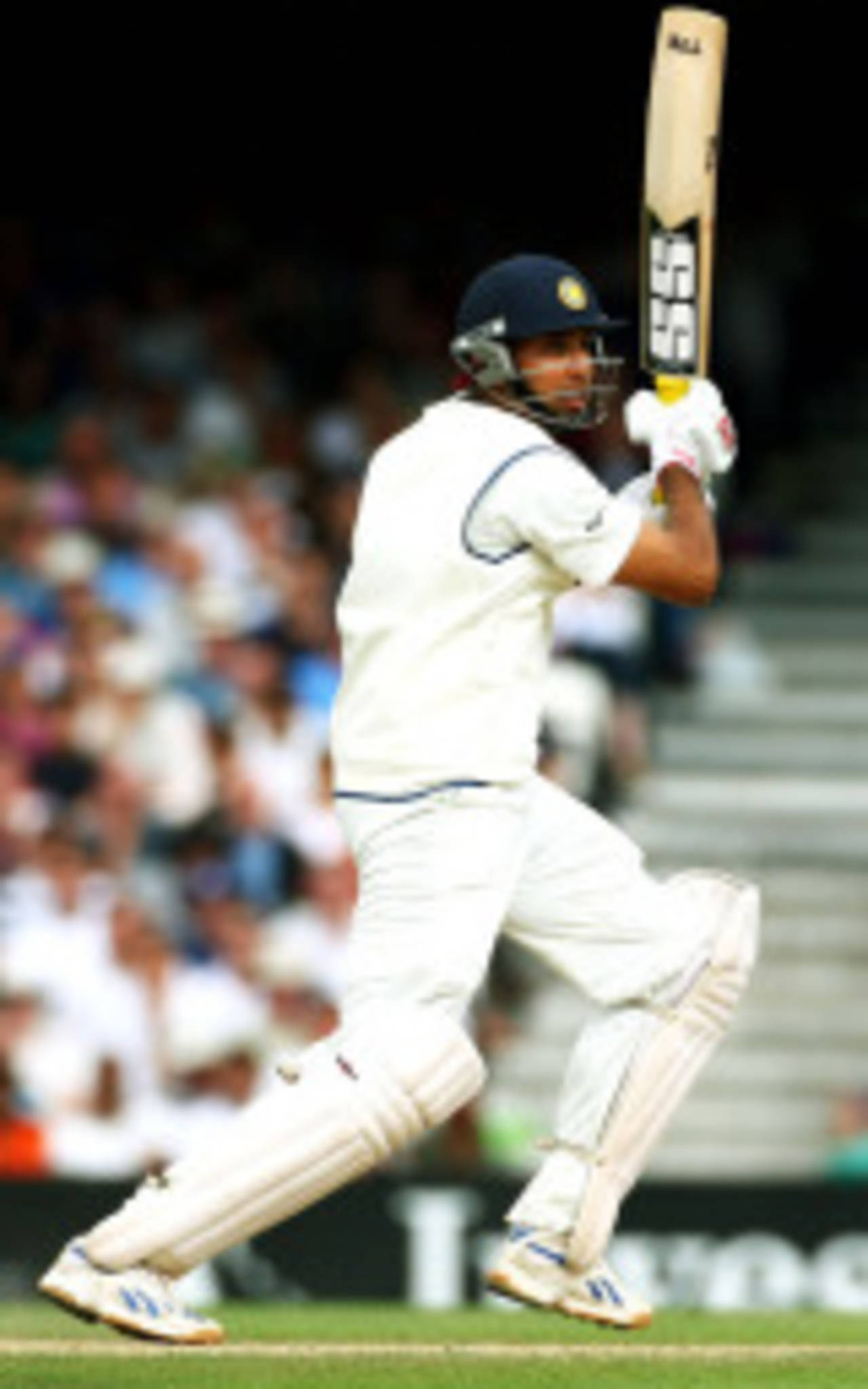Time to rejig batting order
Captain Kumble might turn out to be an inspired choice
Mukul Kesavan
Feb 25, 2013, 10:32 PM

Getty Images
The squad picked for the first two Tests against Pakistan was a relief. VVS Laxman survived. I've begun to think of Laxman in the way I think of an endangered animal species. Every time I hear that he's survived a selectorial cull, I touch wood, celebrate the new sighting and then revert to worrying about extinction in the near future.
In a perfect world he'd bat at number three with Rahul Dravid at five and Sourav Ganguly at six. In my dreams. We're going to be treated to the sight of Dravid with a point or two to prove, hunkering down in the number three trench, prepared to wait out the enemy for the duration of the battle of the Somme.
If we want to see the top order trying to take the initiative, the captain would do well to promote Laxman, who is more likely to play his shots than Dravid. In the semi-old days, Virender Sehwag used to supply the momentum at the top. In his absence the team needs someone else. Dravid is the Indian team's best batsman but his recent Test form has been iffy. Wasim Jaffer and Dravid in partnership after the loss of Dinesh Karthik's wicket is a batting vanguard designed to fight rearguard actions; not the best strategy to take to Australia.
Laxman at three would carry the fringe benefit of pushing Ganguly down to six. Ganguly has earned a place in Test team against Pakistan and if he performs, he will have earned his berth to Australia, but he should bat no higher than six. Given his fragility against the short ball it would be silly to have him bat above someone like Laxman against an Australian pace battery on bouncy pitches.
Which is why Captain Kumble might turn out to be an inspired choice. He's the one player who can disregard the hierarchies of Indian cricket and force a rational batting order on the team. Dravid was too compromised by his closeness to Greg Chappell to impose his authority on the line-up after the Australian's departure and though Mahendra Singh Dhoni doesn't seem to have a deferential bone in his body, he is possibly too 'junior' and too unproven at the Test level to tell his 'seniors' where they should bat. Kumble has been given the captaincy at the end of a magnificent career, he has nothing left to prove, he's not a batsman (and has no personal stake in the matter): consequently he's the closest India gets to the beau ideal of the selfless, disinterested leader.
With him in charge, I live in hope that the eccentric moves to replace Laxman as a Test batsman with Yuvraj will come to nothing. One reason for not making Dhoni Test captain is that it would have been harder for him to keep players who had done well for him in the shorter versions of the game, out of the Test team. The clamour to include Yuvraj in the Test team is fuelled by his limited-overs performances. A captain like Kumble who doesn't play that form of cricket any more, is insulated from those pressures.
Harbhajan Singh has his critics who argue that he isn't the wicket-taking force he once was. He had a wretched time in Pakistan in 2005-6 and an indifferent series against England soon after, but in fairness, he did pretty well against the West Indies in the last Test series he played. He took eleven wickets in two Test matches. I think he's owed an opportunity to prove himself and the Pakistan series is the right proving ground. If he doesn't take enough wickets, he ought to be dropped from the Australian tour.
It is unusual to have two keepers in the playing eleven. There's an Indian precedent in Farokh Engineer and Budhi Kunderan, but it's an unstable condition. While a specialist opening batsman is cut some slack in the matter of big runs so long as he delivers partnerships (Chetan Chauhan comes to mind), a ‘keeper-batsman playing as a specialist opener is, paradoxically, under huge pressure to score a hundred to justify the exclusion of the specialist batsmen clamouring to play in his place. It's unfair, but that's how it works and the Test series against Pakistan should be time enough to judge if Karthik is good enough to become a fixture at the top of the order.
I'd have had S Badrinath in Yuvraj's place because after nineteen tests and a batting average of thirty-three, the Punjab batsman has done enough to demonstrate that he'll never be a significant Test batsman. He's that rare creature: a great specialist limited-overs player. But it's politically impossible to drop him from consideration given his great deeds in one-day and Twenty20 cricket, so the selectors can't be faulted on that score. All things considered, they've done a decent job.
Mukul Kesavan is a writer based in New Delhi